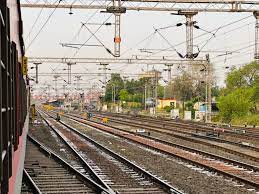Cyclone “Biparjoy” preparation review meeting is presided over by Amit Shah
Tuesday saw a review meeting on the state of preparation for Cyclone “Biparjoy” under the chairmanship of Union Home Minister Amit Shah.
The conference was attended digitally by Gujarat Chief Minister Bhupendra Patel and MPs from eight of the state’s potentially vulnerable regions. The highly dangerous cyclonic storm “Biparjoy” has weakened into a Very Severe Cyclonic Storm (VSCS), according to the India Meteorological Department on Monday.
The National Crisis Management Committee (NCMC) meeting was also presided over by Cabinet Secretary Rajiv Gauba on Monday due to the impending cyclone “Biparjoy” in the Arabian Sea. He emphasised the need to make sure that those in vulnerable areas are evacuated as soon as possible and that preventative and precautionary measures should be taken by concerned Gujarati authorities as well as concerned Central agencies.
The Cabinet Secretary had stated, after reviewing the preparedness steps taken by the Central Agencies and the Gujarati government, that “the aim should be to keep the loss of lives to zero and minimise damage to property and infrastructure, such as power and telecom, and in case of damage to this infrastructure, it must be restored in the shortest possible time.”
The Cabinet Secretary had given the order to contact fishermen who were at sea and make sure that residents in susceptible locations were evacuated well in advance of the cyclone’s impact.
He had also told the Gujarati government that all central agencies were prepared to provide support.
The Committee had also been updated by the Director General of IMD on “Biparjoy’s” present situation.
As a very severe cyclonic storm with a maximum sustained wind speed of 125-135 kmph gusting to 150 kmph, the cyclone is expected to move nearly northward until June 14 morning, then move north-northeastwards and cross Saurashtra and Kutch and adjacent Pakistan coasts between Mandvi (Gujarat) and Karachi (Pakistan) near Jakhau Port (Gujarat) by noon on June 15.
The Committee had been informed by Gujarat’s Chief Secretary of the precautions being taken by the local government and the government at large to safeguard the populace in the projected route of the cyclone. It was disclosed that people at sea had been ordered back to a safe berth and that fisherman had previously been urged not to go out into the open ocean.
Up until this point, 21,000 boats have been parked. For evacuation reasons, a list of all susceptible settlements has been created. To move Saltpan employees to safe locations, details of those employees have also been prepared. The availability of adequate shelters, power supplies, medical supplies, and emergency services is maintained. The State Disaster Response Force (SDRF) is deploying a total of ten teams.
Twelve teams from the National Disaster Response Force (NDRF) have already been sent, and three more teams are waiting in Gujarat. Additionally, 15 teams are maintained on watch for last-minute airlifts, with five teams each at Arrakonam (Tamil Nadu), Mundli (Odisha), and Bathinda (Punjab). Ships and planes, as well as the Coast Guard, Army, and Navy’s rescue and relief teams, have been placed on readiness.
The Army, Navy, Air Force, and Coast Guard are all deploying enough troops and equipment to help Gujarat in its rescue and recovery operations. The DG, Shipping, often sends warnings and advisories to the marine board and other stakeholders.
Offshore oil fields are periodically inspected, and offshore sites in Gujarat have been requested to guarantee the prompt return of all personnel who have been deployed. Major ports Kandla and Mundra have received warnings, and smaller ports have also received recommendations for precautionary measures.
On Monday, Prime Minister Narendra Modi oversaw a high-level meeting to assess how Gujarat and the Centre were prepared to handle any scenario brought on by the approaching storm.
He gave top authorities the go-ahead to take all feasible precautions to guarantee that residents in susceptible areas are safely evacuated by the state government and to maintain all vital services like electricity, telecommunications, health, and drinking water.
In the case that they are damaged, he advised that action be done right once to restore these services. He also instructed that control rooms should be open 24/7 and that animal safety be guaranteed.







